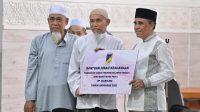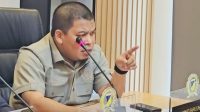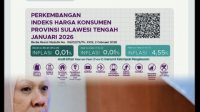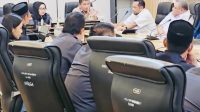PSYCHOSOCIAL Recovery as an effort to reduce disaster risk in the school environment is an aspect that is still untouched in the post-disaster recovery process in Central Sulawesi. Recovery in infrastructure and life insurance is still a major concern, compared to psychosocial recovery efforts and disaster risk reduction.
This fact underlies the Indonesian National Commission on Human Rights (Komnas HAM), together with the Veterans Jogja National Development University (UPN), the UPN Veteran Jogja Disaster Study Center, the Kappala Indonesia Foundation and Sampoerna for Indonesia who are members of the ‘Rumah Besama Relawan’, initiated the Psychosocial Training for Disaster Risk Reduction in Schools.
This activity was carried out for three days, from 9-11 July 2019, at the National Human Rights Commission Office in Central Sulawesi, and was attended by dozens of teachers from a number of high school level schools in Palu City and Sigi District.
“From this training it is expected that the teachers will be able to become post-disaster trauma recovery agents in the school environment. Schools play an important role in the post-disaster recovery process for students, which has not received serious attention so far, in the post-disaster recovery process,” said Gendon from the Foundation Kappala.
The Chairman of the National Human Rights Commission of Central Sulawesi, Dedy Askari said that in the phase nearly 10 months after the disaster, the aspects of psychosocial recovery from the community affected by the disaster have not been touched. So that the presence of the Joint House of Volunteers, with the teacher as the target of psychosocial training, becomes important to mentally restore students.
“Teachers have an important role in the post-disaster trauma recovery process in schools, so for that, teachers are important to be given increased capacity regarding post-disaster psychosocial recovery,” he explained.
Tiwi, one of the participants from the SMA Nusantara Desa Kabobona Sigi Regency, said this training was important for the recovery of student trauma. She said, before the 28 September 2018 disaster, there was no training on disasters carried out, both by the government and non-governmental institutions in schools.
“Training or socialization on disaster, just started to be massive in schools, after the disaster. If all this time mental recovery is done directly to students, in this training, we are teachers who are expected to be agents of mental recovery for students. It is easier, if done by the person closest to the student in the school, namely the teacher,” she said.**
Reporter: Yohanes Clemens









